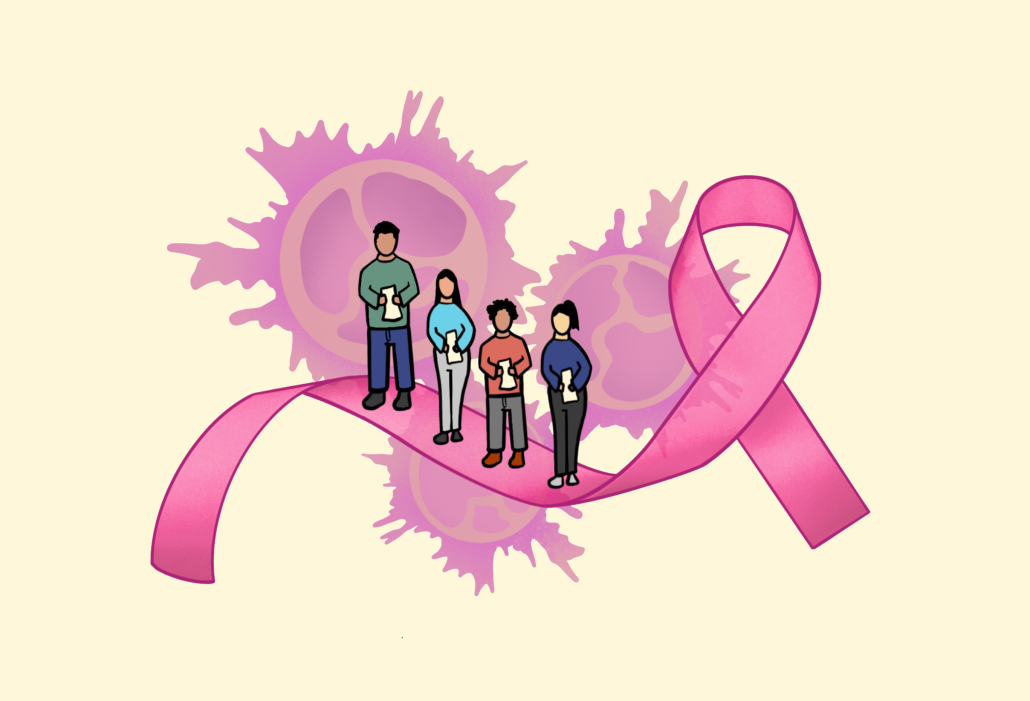Biden’s Moonshot fund to support USC researchers
President Joe Biden’s efforts to accelerate progress against cancer include an $18.5 million grant to a team of researchers at USC Norris Comprehensive Cancer Center. The White House’s Cancer Moonshot initiative aims to decrease the mortality rate of cancer by 50% in the next 25 years. The National Cancer Institute will fund USC researchers’ five-year plan to target the medical field’s lack of knowledge about colorectal cancer in Latinx communities.
Led by John Carpten, professor and chair of translational genomics at the Keck School of Medicine, and Dr. Heinz-Josef Lenz, associate director for clinical research at Keck, the team will collect crucial information on cancer genome sequencing and participation engagement in a long-term study with 500 participants.
“The overall goals of the center are to develop processes and approaches to engage Hispanic patients with colorectal cancer into genomic studies,” said Mariana Carla Stern, co-leader of the patient engagement unit. “The second goal of the center is to contribute novel data on tumor characteristics for colorectal cancer among Hispanics and also germline mutations among Hispanic patients.”
In the past 20 years, researchers from across the globe have rapidly progressed scientific understanding of cancer’s onset and treatment, but marginalized communities have felt a deficiency in both areas, Stern said. The USC Center for Optimization of Participant Engagement for Cancer Characterization intends to close this gap.
“Most of the studies that have been done to understand the human landscape of cancer have not included Hispanic individuals,” Stern said. “Therefore, we know a lot less about the characteristics of tumors among Hispanics than we know about the characteristics of tumors among non-Hispanic [white people].”
According to a 2019 study published by the Centers for Disease Control and Prevention, Latinx patients exhibit a significantly higher mortality rate from various forms of cancer than their non-Latinx counterparts.
“This disparity that we see in terms of research among Hispanics is really prevalent across many other areas of medicine,” Stern said.
To address this general disparity, USC researchers will be engaging with research participants to broaden the scope of their study. Stern and her patient engagement team will use this five-year window as a foundation to understand the impact of their research and the unique cultural interactions between the Latinx community and the medical field.
Stern said that the team will be asking about patients’ experiences navigating the study and following up with their results a year after the delivery of genetic information. Additionally, the team will gather data on the attitudes of Latinx participants towards clinical trials, with goals to engage the community in future research projects.
Biden’s Moonshot funding campaign engages five other centers across the country — Broad Institute Research Center, Washington University Research Center, Ohio State University Coordinating Center, Yale University Research Center and University of New Mexico and TGen Research Center — that will gather critical information on other types of cancer and communities to contribute to this ambitious project.
“[Many] people in this consortium are working with different racial and ethnic minorities of different kinds, some with Hispanics, as well as others with American Indians, others with other groups,” said Lourdes Baez Conde, professor of preventive medicine at Keck and leader of the engagement optimization unit. “The idea is that we’re going to learn from each other … how to best approach this in these unique populations that have not traditionally participated in research at the level that other people have.”
The findings from this funding project will open the doors for progress in other areas of medicine, and for other marginalized groups who also lack critical representation in medical research, Lenz said.
By the end of the five-year research effort, Lenz and his team at NCI hope to gain a stronger grasp on the onset and treatment of cancer in Latinx populations, but this is only the first step of many in closing the gap between representation and understanding of cancer in Latinx communities, Lenz said. USC’s research team is optimistic that their efforts will create a foundation for this extensive field of study.
“[The Moonshot fund] will really generate lots of both systemic and patient-centered changes that will make a difference in terms of resolving some of the major health disparities that we see in cancer at the moment,” Baez Conde said. “It’s going to really ignite the field in a new way.”


